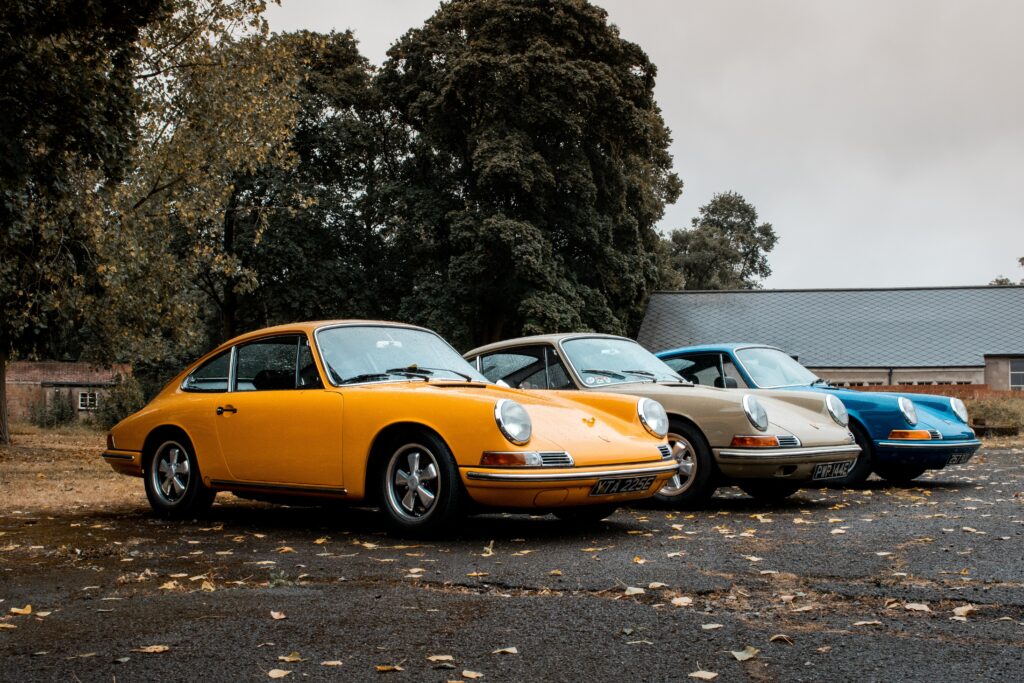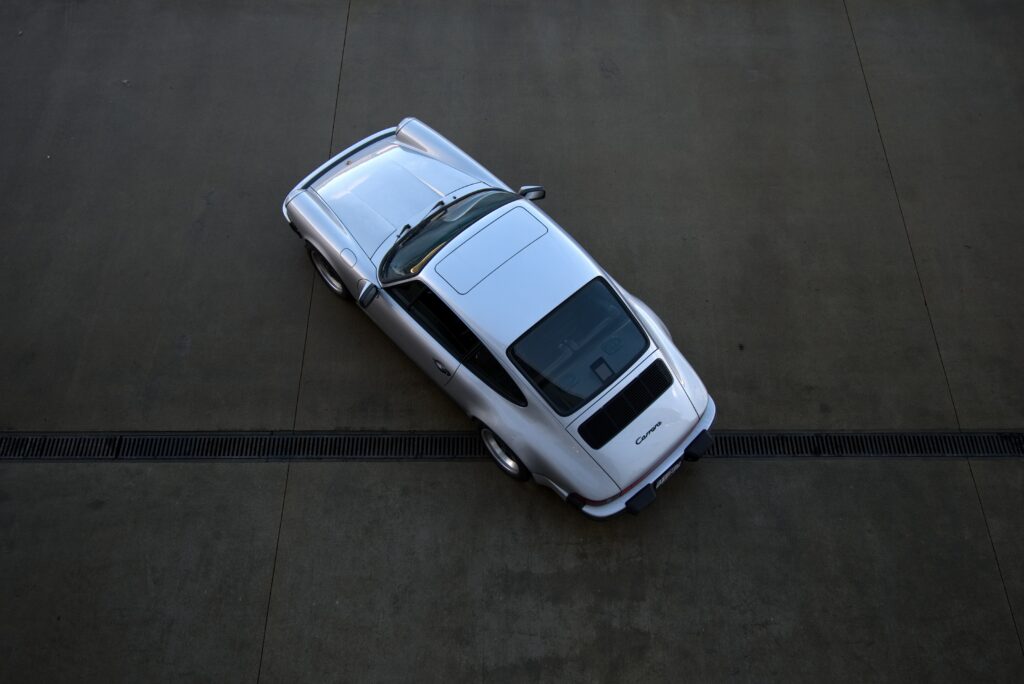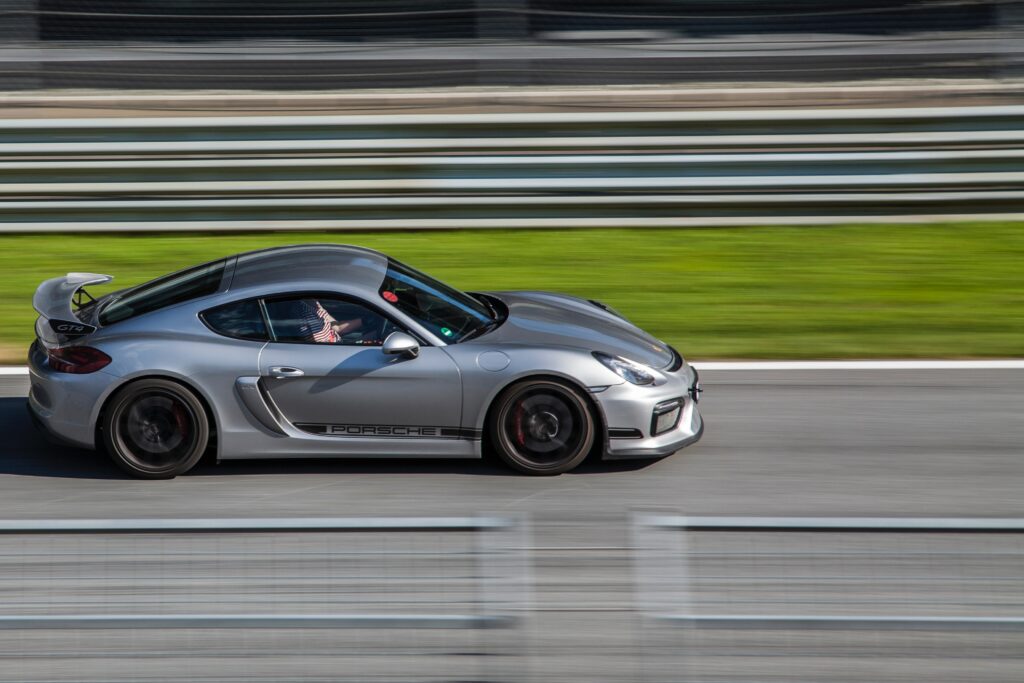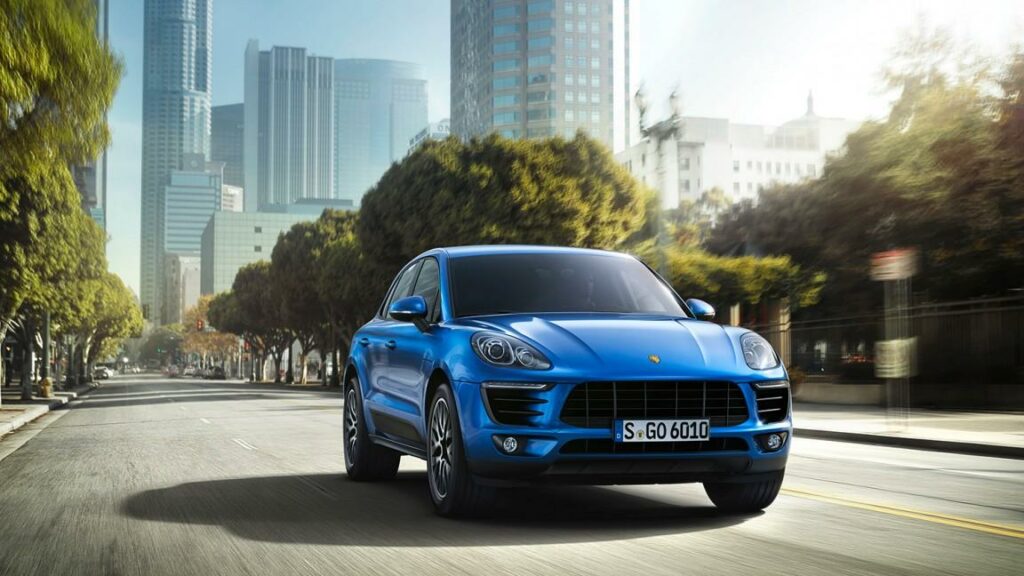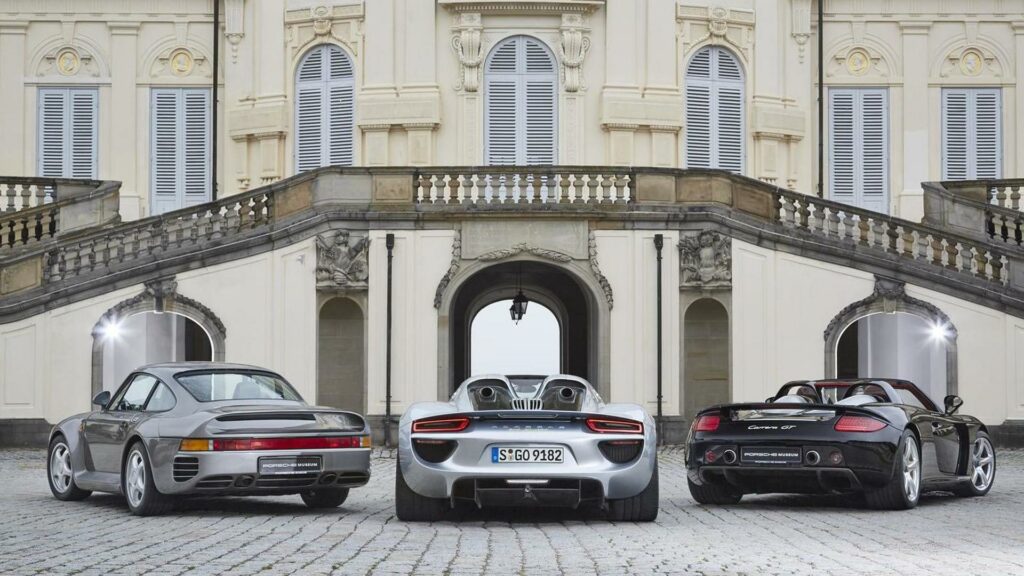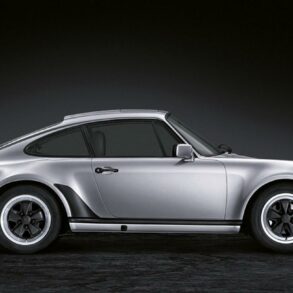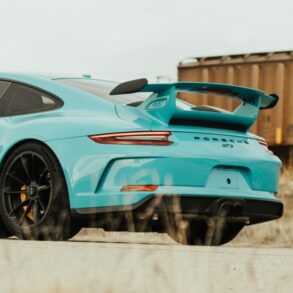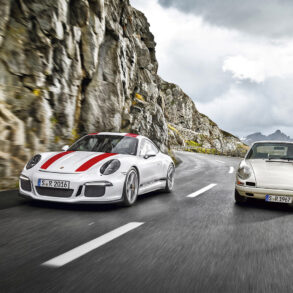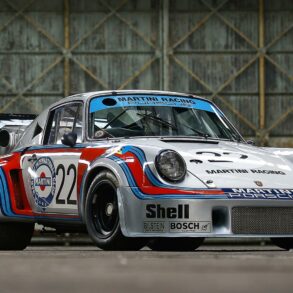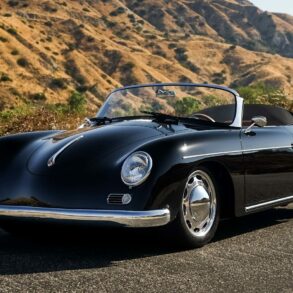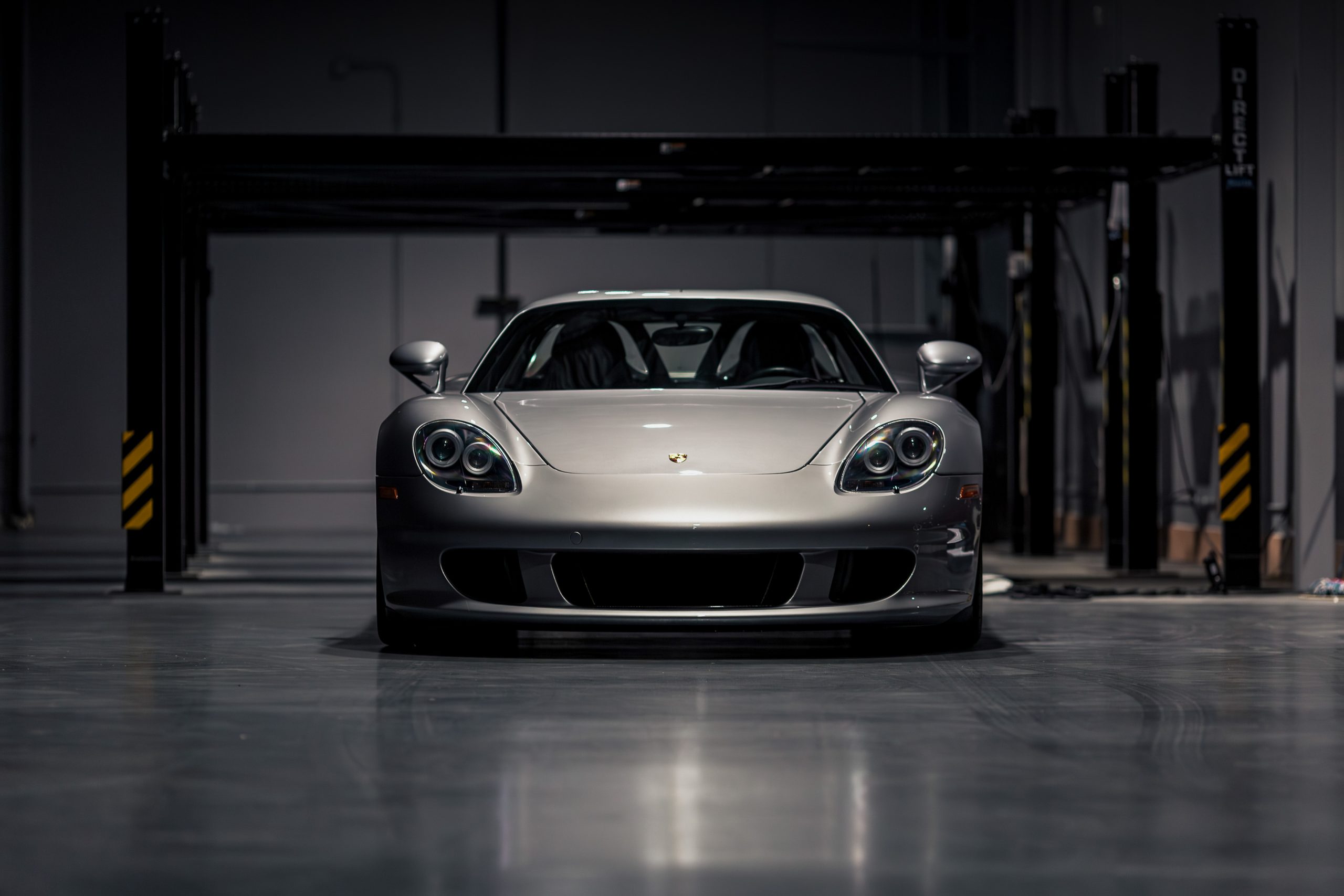Over 350 Cars! We Compiled the Porsche Performance Numbers & Specs for Every Porsche
What’s Here
911 Models
Porsche 911
Misc Car
Porsche 356
Porsche 550
Porsche 914
Porsche 924
Porsche 928
Porsche 944
Porsche 968
Porsche Boxster
Porsche Cayman
Porsche Taycan
SUV & Sedan
Porsche Cayenne
Porsche Panamera
Porsche Macan
Supercar
Porsche 959
Porsche 911 GT1
Porsche Carrera GT
Porsche 918
Updated July 2019: 992 911 & 718 GT4 numbers
Avid readers of Supercars.net know we are huge Porsche fans (obsessed may be a more accurate description actually). This year alone we spent six months researching Porsche history, we compiled a list of every Porsche model ever made, grabbed all the specs and performance numbers and put them all in one place. We even had the guts to take on the greatest Porsches ever, the best race cars and picked the definitive list of the greatest 911s and non 911s. All that work and it took all of a week for readers to ask for more.
You guys wanted Porsche performance numbers by model. While lap times and top speed numbers were important, most of you wanted to see Porsche 0 – 60 mph and quarter miles times. There is just something about a car going from standstill to sixty mph that gets car guys talking, it is the bread and butter of car enthusiast arguments and has been for decades. You can feel a Porsche’s 0-60 mph time and even quarter mile in a way that you can’t with top speed. Any modern 911 will almost hit 200 mph and you can do that speed exactly nowhere. Hit 60 mph in a 911, you can do that anywhere you want, anytime you want.
With all of this in mind we went through our Porsche model list to find the acceleration times and put them on this page. We sorted them a few different ways (by top 20 0-60, then top 20 1/4 mile and finally by model. Hopefully that works for you guys but let us know if it doesn’t.
Also see: Top 100 cars around Nurburgring (we counted 27 Porsches).
Porsche 911: 0-60 MPH, 1/4 Mile & Top Speed
Every generation of Porsche 911 is faster than the previous one. Therefore, comparing all Porsche 911 0-60mph times does not seem very intuitive and helpful so instead, we broke out the list into generations. At least that way you can compare Porsche 911 performance by era and see which Porsche 911 is the fastest accelerating or most powerful of its time.
Porsche 911 – Early Years (1963 – 1973)
In the early years Porsche 911s were not known for straight line speed, in fact the was not initially regarded as the “gold standard” of sports cars. Straight line acceleration and zero to sixty mph were well behind the American muscle cars and Italian sports cars of the time. Where the Porsche 911 made up for it was in the way it handled and the way it worked on a circuit.
| Year | Model | Power | 0-60 mph | Top Speed | 1/4 Mile |
|---|---|---|---|---|---|
| 1964 | Porsche 911 | 130 hp | 8.3 s | 130 mph | 16.2 s |
| 1964 | Porsche 911 | 145 hp | 9.0 s | 132 mph | 16.2 s |
| 1966 | Porsche 911 S | 180 hp | 8.1 s | 141 mph | 15.5 s |
| 1967 | Porsche 911 L Coupé | 130 hp | 8.3 s | 130 mph | 16.5 s |
| 1967 | Porsche 911 R | 227 hp | 6.0 s | 152 mph | 13.3 s |
| 1967 | Porsche 911 T Coupé | 110 hp | 8.9 s | 130 mph | 16.6 s |
| 1967 | Porsche 911 L Targa | 130 hp | 8.3 s | 130 mph | 16.5 s |
| 1967 | Porsche 911 T Targa | 110 hp | 8.3 s | 130 mph | 16.5 s |
| 1967 | Porsche 911 Targa | 130 hp | 8.3 s | 130 mph | 16.5 s |
| 1970 | Porsche 911 E 2.2 Coupé | 155 hp | 7.6 s | 134 mph | 15.5 s |
| 1970 | Porsche 911 S 2.2 Coupé | 180 hp | 7.8 s | 144 mph | 15.1 s |
| 1970 | Porsche 911 T 2.2 Coupé | 125 hp | 9.5 s | 127 mph | 16.5 s |
| 1970 | Porsche 911 E 2.2 Targa | 155 hp | 7.6 s | 134 mph | 15.5 s |
| 1970 | Porsche 911 S 2.2 Targa | 180 hp | 7.8 s | 144 mph | 15.0 s |
| 1970 | Porsche 911 T 2.2 Targa | 125 hp | 9.5 s | 127 mph | 16.5 s |
| 1971 | Porsche 911 S/T | 190 hp | |||
| 1972 | Porsche 911 E 2.4 Coupé | 165 hp | 8.4 s | 134 mph | 16.4 s |
| 1972 | Porsche 911 S 2.4 Coupé | 190 hp | 7.8 s | 144 mph | |
| 1972 | Porsche 911 T 2.4 Coupé | 130 hp | 8.1 s | 127 mph | 15.9 s |
| 1972 | Porsche 911 E 2.4 Targa | 165 hp | 7.5 s | 137 mph | 15.1 s |
| 1972 | Porsche 911 S 2.4 Targa | 190 hp | 7.8 s | 144 mph | 15.1 s |
| 1972 | Porsche 911 T 2.4 Targa | 130 hp | 8.1 s | 127 mph | 15.9 s |
Porsche 911 – G Series (1973 – 1989)
Ten years after the 911 launched Porsche gave the 911 a comprehensive makeover. Known as the ‘G-model’, the new generation 911 was built from 1973 to 1989. On the naturally aspirated side the 911 Carrera replaced the SC in 1983 and, having an engine capacity of 3.2 litres and 231 hp, became a much loved collector’s piece. From a performance perspective however, the most notable G-Series model was first 911 Turbo with a three-liter engine and 260 hp it seriously amped up straight line acceleration numbers. In 1977 came 911 Turbo 3.3 which added a charge air cooler and 300 hp for a sub 5 second sprint to sixty and 13 second quarter mile time.
| Year | Model | Power | 0-60 mph | Top Speed | 1/4 Mile |
|---|---|---|---|---|---|
| 1973 | Porsche 911 S | 181 hp | 7.8 s | 142 mph | 15.1 s |
| 1973 | Porsche 911 Carrera RS 2.7 Lightweight | 210 hp | 5.5 s | 150 mph | |
| 1973 | Porsche 911 Carrera RS 2.7 Touring | 210 hp | 5.2 s | 152 mph | |
| 1974 | Porsche 911 Carrera | 167 hp | 7.5 s | 144 mph | 14.9 s |
| 1974 | Porsche 911 Carrera 2.7 MFI | 210 hp | 6.1 s | 148 mph | |
| 1974 | Porsche 911 Carrera RS 3.0 | 230 hp | 152 mph | ||
| 1975 | Porsche 911 Turbo 3.0 Coupé | 260 hp | 5.2 s | 155 mph | |
| 1978 | Porsche 911 SC Coupe | 180 hp | 6.3 s | 126 mph | 15.0 s |
| 1978 | Porsche 911 SC Targa | 172 hp | 6.7 s | 138 mph | |
| 1978 | Porsche 911 Turbo 3.3 Coupé | 300 hp | 5.0 s | 162 mph | 13.7 s |
| 1983 | Porsche 911 Cabriolet | 172 hp | 7.0 s | 124 mph | 15.3 s |
| 1983 | Porsche 911 SC Cabriolet | 204 hp | 7.0 s | 146 mph | 15.3 s |
| 1984 | Porsche 911 SC RS | 250 hp | 5.5 s | 155 mph | 15.4 s |
| 1987 | Porsche 911 Carrera 3.2 Clubsport | 228 hp | 5.3 s | 154 mph | 14.0 s |
| 1987 | Porsche 911 Turbo ‘Flachbau’ | 330 hp | 4.6 s | 173 mph | 13.0 s |
| 1987 | Porsche 911 Turbo 3.3 Cabriolet | 282 hp | 4.9 s | 150 mph | 13.5 s |
| 1988 | Porsche 911 Club Sport | 214 hp | 5.7 s | 149 mph | 14.0 s |
| 1989 | Porsche 911 Speedster | 231 hp | 6.0 s | 152 mph | 14.6 s |
| 1989 | Porsche 911 Turbo Limited Edition | 330 hp | 5.0 s | 170 mph |
Porsche 911 – 964 (1989 – 1994)
The Porsche 911 (Type 964) looked virtually the same as its predecessor, save for the introduction of aerodynamic bumpers and an automatically-extending rear spoiler. It featured a 3.6- liter boxer engine that produced an impressive 250 horsepower. It was the introduction of an all-wheel drive Carrera 4 model that really captured the attention of the automotive community as a whole (it was revolutionary for its time). In addition to the base model Carrera Coupe, Cabriolet and, Targa versions, the 1990 Porsche 911 offerings also included a Type 964 Turbo option with a turbocharged 3.3- liter boxer engine. In 1992, the Porsche 911 Turbo was upgraded to a more powerful 3.6- liter engine that produced 320 horsepower and could catapult the 911 Turbo to a top speed of 168 miles per hour, with a 0-60 mph time of just 4.8 seconds.
| Year | Model | Power | 0-60 mph | Top Speed | 1/4 Mile |
|---|---|---|---|---|---|
| 1990 | Porsche 911 Carrera Coupe | 250 hp | 5.5 s | 162 mph | 13.3 s |
| 1990 | Porsche 911 Cabriolet | 250 hp | 5.5 s | 162 mph | 13.3 s |
| 1990 | Porsche 911 Carrera 4 Coupe | 250 hp | 5.7 s | 162 mph | 13.5 s |
| 1990 | Porsche 911 Carrera 4 Leichtbau | 300 hp | |||
| 1990 | Porsche 911 Turbo 3.3 Coupé | 315 hp | 4.8 s | 168 mph | 13.6 s |
| 1992 | Porsche 911 Carrera RS | 260 hp | 5.1 s | 162 mph | 12.9 s |
| 1992 | Porsche 911 RS America | 247 hp | 5.3 s | 162 mph | |
| 1992 | Porsche 911 Carrera RS Competition | 260 hp | 5.2 s | 173 mph | |
| 1993 | Porsche 911 Turbo 3.6 Coupé | 360 hp | 4.7 s | 174 mph | 13.6 s |
| 1993 | Porsche 911 Turbo 3.0 Coupé | 375 hp | 4.6 s | 180 mph | 12.5 s |
Porsche 911 – 993 (1994 – 1998)
The 993 generation Porsche 911 sold between 1994 and early 1998 and is considered by many Porsche enthusiasts as the “ultimate 911” for its unique blend of power and simple elegance. The styling was perfect and it is still the best looking 911 series. More importantly the 993 saw big improvements in chassis engineering and performance that was a big step up. This was the last of the “air-cooled” Porsche 911 and used the standard M64/05(06) engine with 3.6 liter displacement (carried over from the 964) and ~ 270 hp. In 1995 Porsche switched to the VarioRam equipped M64/21(22) engine and power output increased to 282 hp. The RS got a more powerful version with 3.8 liter and 300 hp. For Turbo 993s the 3.6 liter got twin KKK K16 turbos and made 402 hp although you could customize your order (on Turbo S and GT2 models) to up that to 444 hp.
| Year | Model | Power | 0-60 mph | Top Speed | 1/4 Mile |
|---|---|---|---|---|---|
| 1994 | Porsche 911 Carrera | 272 hp | 5.4 s | 168 mph | 13.6 s |
| 1994 | Porsche 911 Carrera 4 | 272 hp | 5.2 s | 171 mph | 13.6 s |
| 1994 | Porsche 911 Cabriolet | 270 hp | 5.4 s | 168 mph | 14.2 s |
| 1994 | Porsche 911 Speedster | 247 hp | 5.7 s | 162 mph | 13.8 s |
| 1994 | Porsche 911 Turbo 3.6 S | 379 hp | 4.4 s | 183 mph | 12.7 s |
| 1995 | Porsche 911 Carrera 4S | 282 hp | 5.2 s | 168 mph | 13.4 s |
| 1995 | Porsche 911 Carrera Cabriolet | 270 hp | 5.4 s | 168 mph | 14.2 s |
| 1995 | Porsche 911 Carrera RS 3.8 | 300 hp | 4.7 s | 172 mph | 13.2 s |
| 1995 | Porsche 911 GT2 | 450 hp | 3.6 s | 186 mph | 12.1 s |
| 1995 | Porsche 911 Turbo | 355 hp | 4.5 s | 174 mph | 12.3 s |
| 1996 | Porsche 911 Carrera RS 3.8 Clubsport | 300 hp | 168 mph | ||
| 1996 | Porsche 911 Targa | 272 hp | 6.3 s | 180 mph | 13.3 s |
| 1997 | Porsche 911 Turbo S | 424 hp | 3.8 s | 184 mph | 11.8 s |
| 1998 | Porsche 911 GT2 | 450 hp | 3.7 s | 186 mph | 12.1 s |
| 1998 | Porsche 911 GT2 Evo | 485 hp |
Porsche 911 – 996 (1998 – 2004)
The 996 Porsche 911 series was a new design with all- new body work, a reimagined interior, and the first water-cooled engine ever used in a 911. It broke with tradition in a big way. The 996 911 cars were introduced in early 1997 and had a 3.4 liter naturally aspirated flat-6 that produced 296 horsepower thanks to the introduction of its four-valve cylinder heads. The Porsche 911 Turbo debuted in 1999 and was the performance leaders in terms of the sprint to sixty and quarter mile. Perhaps most exciting though was the specialist performance 911s, with the GT3 our favorite. The car featured a stiffer, adjustable suspension platform as well as upgraded brakes. In 2002, the standard models of the type 996 underwent minor re-styling and were standardized on the 3.6- liter engine, which yielded gains of 15 horsepower to the naturally aspirated models.
| Year | Model | Power | 0-60 mph | Top Speed | 1/4 Mile |
|---|---|---|---|---|---|
| 1999 | Porsche Carrera Coupe | 296 hp | 5.2 s | 168 mph | 13.3 s |
| 1999 | Porsche 911 Carrera Cabriolet | 296 hp | 5.4 s | 171 mph | 13.6 s |
| 1999 | Porsche 911 Carrera 4 Coupe | 296 hp | 5.2 s | 168 mph | 13.2 s |
| 1999 | Porsche 911 Carrera 4 Cabriolet | 296 hp | 5.2 s | 162 mph | 13.1 s |
| 2000 | Porsche 911 Turbo | 415 hp | 4.0 s | 183 mph | 12.4 s |
| 2002 | Porsche Carrera Coupe | 320 hp | 5.0 s | 168 mph | 12.9 s |
| 2002 | Porsche 911 Carrera Cabriolet | 320 hp | 5.2 s | 168 mph | 13.2 s |
| 2002 | Porsche 911 Carrera 4 Cabriolet | 320 hp | 5.2 s | 172 mph | 13.1 s |
| 2002 | Porsche 911 Carrera 4S Coupe | 320 hp | 5.1 s | 186 mph | 12.9 s |
| 2002 | Porsche 911 Targa | 320 hp | 5.2 s | 174 mph | 12.5 s |
| 2002 | Porsche 911 GT2 | 462 hp | 4.0 s | 168 mph | 11.8 s |
| 2002 | Porsche 911 Turbo X50 | 450 hp | 4.1 s | 180 mph | 12.7 s |
| 2003 | Porsche 911 GT3 | 381 hp | 4.0 s | 184 mph | 12.5 s |
| 2004 | Porsche 911 Carrera 4S Cabriolet | 315 hp | 5.3 s | 186 mph | 12.9 s |
| 2004 | Porsche 911 GT2 | 483 hp | 3.9 s | 186 mph | 11.9 s |
| 2004 | Porsche 911 GT3 RS | 381 hp | 4.4 s | 186 mph | 12.7 s |
| 2004 | Porsche 911 Turbo Cabriolet | 420 hp | 4.2 s | 186 mph | 12.7 s |
| 2005 | Porsche 911 Turbo S Cabriolet | 450 hp | 4.3 s | 186 mph | 12.2 s |
| 2005 | Porsche 911 Turbo S Coupé | 450 hp | 4.2 s | 186 mph | 12.2 s |
Porsche 911 – 997 (2004 – 2011)
The 991 series 911s featured the same classic silhouette as all earlier variants of the Porsche 911, and included design cues that were found on older 911 models. The car was hailed for being a true high-performance vehicle and this is when we saw base Porsche 911 models with acceleration and straight line numbers that could compete with the supercars. The base Carrera featured a 3.6- liter boxer engine that produced an impressive 325 horsepower while the new 3.8- liter, six-cylinder engine found in the Carrera S had 355 horsepower. In 2006 Porsche introduced the 911 Turbo which had almost 500 hp and a sub 4 second 0-60 mph time. Porsche also introduced the next-generation Porsche 911 GT3 and again while the Turbo was faster, most pundits wanted the GT3 in their garage. The Porsche 911 type 997 received another update in late-fall 2008 (called the 997.2) and the focus was improved fuel efficiency and the addition dual-clutch transmissions.
| Year | Model | Power | 0-60 mph | Top Speed | 1/4 Mile |
|---|---|---|---|---|---|
| 2005 | Porsche 911 Carrera Cabriolet | 325 hp | 5.0 s | 177 mph | 13.1 s |
| 2005 | Porsche 911 Carrera Coupe | 325 hp | 4.8 s | 177 mph | 13.1 s |
| 2005 | Porsche 911 Carrera S Cabriolet | 355 hp | 4.7 s | 182 mph | 12.8 s |
| 2005 | Porsche 911 Carrera S Coupe | 355 hp | 4.6 s | 182 mph | 12.8 s |
| 2006 | Porsche 911 Carrera 4 Cabriolet | 325 hp | 5.1 s | 174 mph | 13.0 s |
| 2006 | Porsche 911 Carrera 4 Coupe | 325 hp | 4.9 s | 174 mph | 13.0 s |
| 2006 | Porsche 911 Carrera 4S Cabriolet | 355 hp | 4.6 s | 179 mph | 12.8 s |
| 2006 | Porsche 911 Carrera 4S Coupe | 355 hp | 4.6 s | 179 mph | 12.8 s |
| 2006 | Porsche 911 Turbo | 480 hp | 3.6 s | 193 mph | 11.4 s |
| 2007 | Porsche 911 GT3 | 415 hp | 4.0 s | 193 mph | 11.9 s |
| 2007 | Porsche 911 GT3 RS | 415 hp | 4.1 s | 193 mph | 12.0 s |
| 2007 | Porsche 911 Targa 4 | 325 hp | 5.1 s | 174 mph | 13.0 s |
| 2007 | Porsche 911 Targa 4S | 355 hp | 4.7 s | 179 mph | 12.9 s |
| 2007 | Porsche 911 Turbo Cabriolet | 480 hp | 3.9 s | 183 mph | 11.5 s |
| 2008 | Porsche 911 GT2 | 530 hp | 3.4 s | 204 mph | 11.6 s |
| 2009 | Porsche 911 Carrera 4 Cabriolet | 345 hp | 5.0 s | 177 mph | |
| 2009 | Porsche 911 Carrera 4 Coupe | 345 hp | 4.9 s | 174 mph | |
| 2009 | Porsche 911 Carrera 4S Cabriolet | 385 hp | 4.7 s | 179 mph | 12.3 s |
| 2009 | Porsche 911 Carrera 4S Coupé | 385 hp | 4.5 s | 185 mph | 12.3 s |
| 2009 | Porsche 911 Carrera Cabriolet | 345 hp | 4.9 s | 179 mph | 12.7 s |
| 2009 | Porsche 911 Carrera Coupe | 345 hp | 4.7 s | 179 mph | 12.7 s |
| 2009 | Porsche 911 Carrera S Cabriolet | 385 hp | 4.7 s | 179 mph | 12.4 s |
| 2009 | Porsche 911 Carrera S Coupe | 385 hp | 4.5 s | 187 mph | 12.4 s |
| 2009 | Porsche 911 GT3 | 435 hp | 4.0 s | 187 mph | 11.8 s |
| 2009 | Porsche 911 Targa 4 | 345 hp | 4.8 s | 194 mph | 12.7 s |
| 2009 | Porsche 911 Targa 4S | 385 hp | 4.5 s | 177 mph | 12.4 s |
| 2010 | Porsche 911 Carrera GTS Cabriolet | 408 hp | 4.5 s | 185 mph | 12.6 s |
| 2010 | Porsche 911 Carrera GTS Coupé | 408 hp | 4.4 s | 190 mph | 12.3 s |
| 2010 | Porsche 911 GT2 RS | 611 hp | 3.4 s | 205 mph | 11.1 s |
| 2010 | Porsche 911 GT3 RS | 444 hp | 3.8 s | 193 mph | 11.8 s |
| 2010 | Porsche 911 Speedster | 408 hp | 4.4 s | 190 mph | |
| 2010 | Porsche 911 Sport Classic | 402 hp | 4.6 s | 188 mph | |
| 2010 | Porsche 911 Turbo Cabriolet | 500 hp | 3.3 s | 193 mph | 10.9 s |
| 2010 | Porsche 911 Turbo S Cabriolet | 530 hp | 3.2 s | 194 mph | 10.6 s |
| 2010 | Porsche 911 Turbo S Coupé | 530 hp | 3.1 s | 195 mph | 10.6 s |
| 2011 | Porsche 911 GT3 RS 4.0 | 493 hp | 3.9 s | 195 mph | 12.0 s |
| 2011 | Porsche 911 Turbo S | 500 hp | 3.2 s | 194 mph | 10.9 s |
Porsche 911 – 991 (2011 – 2019)
The 991 Porsche 911 generation is by far the most interesting in our opinion. It started out with the usual improvements to the 911. An evolutionary design, the addition of additional technology, more fuel efficiency and a decent increase in performance across the range. Overall, the easiest 911 cars to live with and the most effective performance machines they had ever made. However, things changed a lot during the midlife refresh cycle for the 991 range when the updated Porsche 911 (991.2) introduced an all new, 3.0liter twin-turbocharged flat-six engines across the range. This was the first time the standard Carrera models had adopted turbocharged engines rather than naturally aspirated ones, which were initially criticized for lacking the engine sound that previous non-turbocharged variations had. This criticism quickly dissipated as it became apparent the 991.2 offered a substantial step up in performance and feel over the preceding models. You can see that fro 2016 onwards the vast range of 911 models is dipping into low 3 second 0-60 mph times and low 11 second quarter miles times, with the Turbo models destroying even those benchmark numbers.
| Year | Model | Power | 0-60 mph | Top Speed | 1/4 Mile |
|---|---|---|---|---|---|
| 2012 | Porsche 911 Carrera Coupé | 350 hp | 4.6 s | 178 mph | 12.7 s |
| 2012 | Porsche 911 Carrera Cabriolet | 350 hp | 4.6 s | 178 mph | 12.9 s |
| 2012 | Porsche 911 Carrera S | 395 hp | 4.0 s | 191 mph | 12.1 s |
| 2012 | Porsche 911 Carrera S Cabriolet | 395 hp | 4.0 s | 191 mph | 12.3 s |
| 2012 | Porsche 911 Carrera 4 Coupé | 344 hp | 4.6 s | 178 mph | 12.7 s |
| 2012 | Porsche 911 Carrera 4 Cabriolet | 344 hp | 4.6 s | 178 mph | 12.7 s |
| 2012 | Porsche 911 Carrera 4S Coupé | 395 hp | 3.7 s | 186 mph | 11.8 s |
| 2012 | Porsche 911 Carrera 4S Cabriolet | 395 hp | 4.5 s | 183 mph | 12.2 s |
| 2013 | Porsche 911 50th Anniversary Edition | 395 hp | 3.7 s | 189 mph | 12.4 s |
| 2013 | Porsche 911 GT3 | 469 hp | 3.5 s | 196 mph | 11.1 s |
| 2013 | Porsche 911 Turbo | 520 hp | 3.4 s | 196 mph | 11.2 s |
| 2013 | Porsche 911 Turbo Cabriolet | 520 hp | 3.4 s | 195 mph | 11.3 s |
| 2013 | Porsche 911 Turbo S | 560 hp | 3.1 s | 198 mph | 11.0 s |
| 2013 | Porsche 911 Turbo S Cabriolet | 560 hp | 3.1 s | 183 mph | 11.0 s |
| 2014 | Porsche 911 Carrera GTS Coupé | 430 hp | 4.0 s | 191 mph | 11.9 s |
| 2014 | Porsche 911 Carrera GTS Cabriolet | 430 hp | 4.0 s | 191 mph | 12.0 s |
| 2014 | Porsche 911 Carrera 4 GTS Coupé | 430 hp | 3.7 s | 186 mph | |
| 2014 | Porsche 911 Carrera 4 GTS Cabriolet | 430 hp | 3.7 s | 186 mph | |
| 2014 | Porsche 911 Targa 4 | 350 hp | 4.6 s | 178 mph | |
| 2014 | Porsche 911 Targa 4S | 400 hp | 4.0 s | 186 mph | 12.6 s |
| 2015 | Porsche 911 Targa GTS | 423 hp | 4.0 s | 186 mph | |
| 2016 | Porsche 911 GT3 RS | 500 hp | 3.1 s | 193 mph | 11.1 s |
| 2016 | Porsche 911 R | 500 hp | 3.4 s | 200 mph | 11.5 s |
| 2016 | Porsche 911 Carrera | 364 hp | 3.6 s | 183 mph | 11.9 s |
| 2016 | Porsche 911 Carrera Cabriolet | 364 hp | 3.6 s | 181 mph | 11.9 s |
| 2016 | Porsche 911 Carrera S | 414 hp | 3.5 s | 191 mph | 11.4 s |
| 2016 | Porsche 911 Carrera S Cabriolet | 414 hp | 3.9 s | 189 mph | 11.5 s |
| 2016 | Porsche 911 Carrera 4 | 364 hp | 3.6 s | 189 mph | 11.9 s |
| 2016 | Porsche 911 Carrera 4 Cabriolet | 364 hp | 3.6 s | 180 mph | 11.9 s |
| 2016 | Porsche 911 Carrera 4S | 414 hp | 3.6 s | 188 mph | 11.4 s |
| 2016 | Porsche 911 Carrera 4S Cabriolet | 414 hp | 3.6 s | 187 mph | 11.9 s |
| 2016 | Porsche 911 Carrera GTS | 444 hp | 3.4 s | 184 mph | 11.9 s |
| 2016 | Porsche 911 Carrera GTS Cabriolet | 444 hp | 3.4 s | 193 mph | 11.4 s |
| 2016 | Porsche 911 Carrera 4 GTS | 444 hp | 3.4 s | 193 mph | 11.4 s |
| 2016 | Porsche 911 Carrera 4 GTS Cabriolet | 444 hp | 3.4 s | 191 mph | 11.5 s |
| 2016 | Porsche 911 Targa 4 | 364 hp | 4.7 s | 180 mph | 11.9 s |
| 2016 | Porsche 911 Targa 4S | 414 hp | 4.4 s | 188 mph | 11.7 s |
| 2016 | Porsche 911 Targa 4 GTS | 444 hp | 3.4 s | 191 mph | 11.4 s |
| 2016 | Porsche 911 Turbo | 533 hp | 3.0 s | 199 mph | 10.8 s |
| 2016 | Porsche 911 Turbo Cabriolet | 533 hp | 3.1 s | 199 mph | 10.8 s |
| 2016 | Porsche 911 Turbo S | 572 hp | 2.9 s | 205 mph | 10.5 s |
| 2017 | Porsche 911 Turbo S Cabriolet | 572 hp | 3.0 s | 205 mph | 10.6 s |
| 2017 | Porsche 911 Turbo S Exclusive | 599 hp | 2.9 s | 205 mph | 10.5 s |
| 2017 | Porsche 911 GT3 | 493 hp | 3.0 s | 199 mph | 11.1 s |
| 2017 | Porsche GT3 Touring | 493 hp | 3.5 s | 196 mph | 11.5 s |
| 2018 | Porsche Carrera T | 364 hp | 4.2 s | 181 mph | 11.9 s |
| 2018 | Porsche 911 GT3 RS | 513 hp | 3.2 s | 194 mph | 11.1 s |
| 2018 | Porsche 911 GT2 RS | 690 hp | 2.8 s | 211 mph | 10.5 s |
Porsche 911 – 992 (2019 – Present)
The Porsche 911 entered into its eighth generation with the launch of the 992 range in late 2018. The era of the digital Porsche is how we may remember the new version but it is still too early to make a call. Overall it is a much more muscular looking 911, the shape clearly an evolution of the 911 shape we all know and love. The interior is probably the biggest improvement in our eyes, with a 10.9-inch touchscreen monitor, intelligent controls and digital gauges everywhere. All new innovative assistance systems combine the masterfully uncompromising dynamism that the classic rear-engine sports car is famed for, with the demands of the digital world.
Porsche Performance by Model
Porsche 356: 0-60 MPH, Quarter Mile Times & Top Speed
The Porsche 356 was the first production model by the formal Porsche company. Designed as a lightweight and great handling sports car it had a rear-engine and rear-wheel drive. The 356 was a coupé only initially and over years a variety of other styles appeared, including roadster, convertible, cabriolet, and a very rare split-roof. There were four broad generations/models of the 356.
| Year | Model | Power | 0-60 mph | Top Speed | 1/4 Mile |
|---|---|---|---|---|---|
| 1950 | Porsche 356 | 40 hp | 13.9 s | 88 mph | 19.2 s |
| 1956 | Porsche 356A | 60 hp | 14.3 s | 102 mph | 19.1 s |
| 1956 | Porsche 356A Carrera | 11.4 s | 17.5 s | ||
| 1962 | Porsche 356B Carrera 2 | 130 | 9.2 s | 124 mph | |
| 1960 | Porsche 356B/1600 | 11.5 s | 100 mph | ||
| 1964 | Porsche 356C Carrera 2 | 13.5 s | 100 mph |
Porsche 550: 0-60 MPH, 1/4 Mile & Top Speed
The Porsche 550 Spyder is about as classic and iconic as it gets. Porsche needed a race car to compete in the roadster class so it took its 356 and cut off its roof (that’s how you get the 550 Spyder). After its maiden win in Nurburgring in 1953 the 550 Spyder went on to get 95 victories and 75 class wins over a total of 370 races. It wasn’t just about racing for the 550, with 43 examples built as customer cars (of the 90 cars ever made).
| Year | Model | Power | 0-60 mph | Top Speed | 1/4 Mile |
|---|---|---|---|---|---|
| 1954 | Porsche 550 RS Spyder | 110 hp | 7.0 s | 137 mph | 16.2 s |
| 1956 | Porsche 550A RS Spyder | 135 hp | 137 mph |
Porsche 914: 0-60 MPH, 1/4 Mile & Top Speed
By the late 1960’s, both the Porsche and Volkswagen companies were in need of a new automobile model so they built the 914 together. The Porsche’s 914/6 variant featured a carbureted 2.0 liter, flat-6 cylinder engine rated at 108 bhp that had been borrowed from the 1969 911T. The 914/6 sold quite poorly while the much less expensive 914/4 became Porsche’s top seller during its production run, outselling the Porsche 911. Before production of the 914 was ultimately cancelled in 1976, more than 118,000 units were sold world wide, making the 914 one of the most successful Porsche models to date.
| Year | Model | Power | 0-60 mph | Top Speed | 1/4 Mile |
|---|---|---|---|---|---|
| 1970 | Porsche 914 | 85 hp | 13.9 s | 109 mph | 18.9 s |
| 1970 | Porsche 914/6 | 125 hp | 8.7 s | 123 mph | 16.5 s |
| 1973 | Porsche 914/4 2.0 | 100 hp | 8.8 s | 118 mph | 16.5 s |
Porsche 924: 0-60 MPH, 1/4 Mile & Top Speed
The Porsche 924 was originally developed as a joint venture between Volkswagen and Porsche. In the end Porsche bought the design back and built the 924 to be the company’s entry-level sports car (and replacement for the outgoing 914). The Porsche 924 was immediately criticized by enthusiasts for its mediocre performance (you can see they were right below). Over the years it was improved and in 1979 a 924 Turbo was released followed by 924 Carrera GT in 1980. The Carrera GT was really an evolution of the 924 Turbo model, but it was the 924 should have been from the beginning.
| Year | Model | Power | 0-60 mph | Top Speed | 1/4 Mile |
|---|---|---|---|---|---|
| 1976 | Porsche 924 Coupe | 95 hp | 11.6 s | 115 mph | 18.1 s |
| 1977 | Porsche 924 Coupe | 110 hp | 9.2 s | 119 mph | 17.0 s |
| 1978 | Porsche 924 Rallye Turbo | 210 hp | 140 mph | ||
| 1979 | Porsche 924 Turbo Coupe | 150 hp | 6.9 s | 132 mph | 15.0 s |
| 1980 | Porsche 924 Carrera GT | 210 hp | 6.5 s | 150 mph | 15.0 s |
| 1980 | Porsche 924 Carrera GTP | 320 hp | 175 mph | ||
| 1981 | Porsche 924 Turbo Coupe | 150 hp | 7.7 s | 134 mph | 15.7 s |
| 1981 | Porsche 924 Carrera GTS | 245 hp | 6.5 s | 155 mph | 13.7 s |
| 1987 | Porsche 924 S Coupe | 150 hp | 7.4 s | 134 mph | 15.7 s |
| 1988 | Porsche 924 S Coupe | 160 hp | 8.2 s | 137 mph | 16.2 s |
Porsche 928: 0-60 MPH, 1/4 Mile & Top Speed
The Porsche 928 was developed as a luxury GT expected to have wider appeal than the 911. The car had the power and handling of a sports car with the refinement, comfort and equipment of a luxury sedan. At launch the Porsche 928 utilized a 4.5 liter, SOHC (per bank), 16-valve V8 engine which produced 230 horsepower. The car was well received and praised for both its comfort and power, but initial sales of the car were low. The front engine, rear-wheel drive design went against everything that Porsche purists had come to love and many alienated the 928 entirely. Performance wise the 928 had great off the line acceleration and later models dipped into the low 5 second sprint to sixty with ~14 second quarter mile times and top speeds topping 170 mph.
| Year | Model | Power | 0-60 mph | Top Speed | 1/4 Mile |
|---|---|---|---|---|---|
| 1978 | Porsche 928 | 230 hp | 7.0 s | 138 mph | 15.3 s |
| 1980 | Porsche 928 | 231 hp | 6.8 s | 143 mph | 15.6 s |
| 1983 | Porsche 928 S | 234 hp | 7.0 s | 146 mph | 15.4 s |
| 1985 | Porsche 928 S | 288 hp | 6.9 s | 155 mph | 15.2 s |
| 1987 | Porsche 928 S4 | 315 hp | 5.5 s | 165 mph | 13.7 s |
| 1990 | Porsche 928 GT | 330 hp | 5.9 s | 168 mph | 14.1 s |
| 1995 | Porsche 928 GTS | 345 hp | 5.1 s | 171 mph | 14.3 s |
Porsche 944: 0-60 MPH, 1/4 Mile & Top Speed
Porsche re-worked the 924 and developed an all-new, all-alloy 2.5 liter, inline-four cylinder engine which had been dubbed Type 944. Porsche introduced the 944 as a production vehicle in 1982 and it offered drivers better handling and stopping power, and was considered far more comfortable to drive. The Porsche 944 Turbo was introduced in 1985 and featured a turbocharged engine as well as better aerodynamics, strengthened gearbox, external oil coolers and more. In 1987, Porsche introduced the Porsche 944 S which featured a high-performance, naturally aspirated, dual-overhead-cam 16-valve version of Porsche’s 2.5 L engine. In 1988, Porsche introduced an even more powerful variant to the 944 lineup – the Porsche 944 Turbo S.
| Year | Model | Power | 0-60 mph | Top Speed | 1/4 Mile |
|---|---|---|---|---|---|
| 1981 | Porsche 944 GTP | 163 hp | 8.2 s | 130 mph | 16.2 s |
| 1985 | Porsche 944 Turbo | 220 hp | 5.5 s | 152 mph | 14.4 s |
| 1985 | Porsche 944 Turbo Cup | 250 hp | 4.9 s | 168 mph | |
| 1988 | Porsche 944 Turbo | 250 hp | 5.7 s | 162 mph | 14.9 s |
| 1988 | Porsche 944 Turbo S | 250 hp | 5.5 s | 162 mph | 14.0 s |
| 1991 | Porsche 944 Turbo Cabriolet | 250 hp | 5.8 s | 162 mph | |
| 1987 | Porsche 944 S | 190 hp | 7.4 s | 142 mph | 15.6 s |
| 1987 | Porsche 944 | 165 hp | 7.4 s | 137 mph | 15.5 s |
| 1989 | Porsche 944 S2 | 208 hp | 6.5 s | 149 mph | 14.9 s |
| 1990 | Porsche 944 S2 Cabriolet | 208 hp | 6.9 s | 149 mph | 15.0 s |
Porsche 968: 0-60 MPH, 1/4 Mile & Top Speed
The Porsche 968 was manufactured from 1992 to 1995. It was the third – and final – evolution of the front-engine, rear-wheel-drive series of sports cars that began with the Porsche 924 in the early 1970’s. The car was powered by an updated version of the Porsche 944’s straight-four cylinder engine. For 1993 thru 1995, Porsche offered a light-weight “club sport” variant which was specifically developed for owners looking to run their cars at the racetrack. There was also a “968 Turbo S” with a 3 liter engine the car could run a 0-60 mph time of just 4.5 seconds with a top overall speed of 175 mph. Between 1992 and 1994, Porsche motorsports also built a full race version of the Turbo S, it was called the 968 Turbo RS it is extremely rare.
| Year | Model | Power | 0-60 mph | Top Speed | 1/4 Mile |
|---|---|---|---|---|---|
| 1992 | Porsche 968 | 237 hp | 6.5 s | 158 mph | 14.7 s |
| 1992 | Porsche 968 | 237 hp | 5.8 s | 158 mph | 14.2 s |
| 1993 | Porsche 968 Cabriolet | 237 hp | 5.9 s | 158 mph | 14.4 s |
| 1992 | Porsche 968 Turbo RS | 350 hp | 4.4 s | 158 mph | 14.2 s |
| 1993 | Porsche 968 CS Coupe | 240 hp | 6.1 s | 160 mph | 14.7 s |
| 1993 | Porsche 968 Turbo S | 304 hp | 4.5 s | 175 mph | 12.8 s |
Porsche Boxster: 0-60 MPH, 1/4 Mile & Top Speed
The Porsche Boxster was introduced in late 1996 as 1997 model. With a water-cooled, 2.5-liter, flat six engine rated at 201 horsepower. With an open top boxy, low center of gravity, near-perfect weight distribution, and neutral handling it was an instant hit. Performance in a straight line was nothing to rave about at 0-60 mph in 6.7 seconds and 14.7 second quarter mile but the overall driving experience was near perfect. Over time the Boxster has stayed true to its mission while steadily increasing power and performance. The biggest changes was the launch of the 718 Boxster range in 2016 and the switch to a turbocharged four cylinder engine. Many said the sound was terrible but it is hard to argue with the performance gains and the dollop of torque that made a near perfect car even better.
| Year | Model | Power | 0-60 mph | Top Speed | 1/4 Mile |
|---|---|---|---|---|---|
| 1997 | Porsche Boxster | 201 hp | 6.7 s | 149 mph | 14.7 s |
| 2000 | Porsche Boxster | 217 hp | 6.5 s | 155 mph | 14.5 s |
| 2000 | Porsche Boxster S | 252 hp | 5.6 s | 161 mph | 14.1 s |
| 2004 | Porsche Boxster | 225 hp | 6.4 s | 159 mph | 14.6 s |
| 2004 | Porsche Boxster S | 258 hp | 5.7 s | 166 mph | 13.8 s |
| 2005 | Porsche Boxster | 237 hp | 6.2 s | 159 mph | 14.5 s |
| 2005 | Porsche Boxster S | 276 hp | 5.5 s | 167 mph | 13.6 s |
| 2009 | Porsche Boxster | 255 hp | 5.8 s | 163 mph | 14.0 s |
| 2009 | Porsche Boxster S | 310 hp | 5.2 s | 170 mph | 13.4 s |
| 2009 | Porsche Boxster RS 60 Spyder | 299 hp | 5.4 s | 170 mph | 12.5 s |
| 2010 | Porsche Boxster Spyder | 320 hp | 4.2 s | 170 mph | 12.7 s |
| 2012 | Porsche Boxster | 261 hp | 5.2 s | 164 mph | 14.0 s |
| 2012 | Porsche Boxster S | 311 hp | 4.6 s | 173 mph | 12.7 s |
| 2014 | Porsche Boxster GTS | 330 hp | 4.1 s | 175 mph | 12.5 s |
| 2015 | Porsche Boxster Spyder | 370 hp | 4.3 s | 180 mph | 12.2 s |
| 2016 | Porsche 718 Boxster | 300 hp | 4.5 s | 171 mph | 12.2 s |
| 2016 | Porsche 718 Boxster S | 350 hp | 4.0 s | 177 mph | 11.9 s |
| 2017 | Porsche 718 Boxster GTS | 361 hp | 3.9 s | 180 mph | 11.9 s |
Porsche Cayman: 0-60 MPH, 1/4 Mile & Top Speed
The Cayman came along in 2006 and performance numbers weren’t the highlight, it was the chassis and balance that made it a favorite. The first two Cayman generations had a flat six naturally aspirated engine. The Cayman GT4 was the standout, dipping below 4 seconds for the sprint to 60mph. With 911 GT3 suspension and Porsche Motorsport magic, it was the sweetest all-around performer you could ever want. The latest crop of 718 Caymans switched to turbocharged boxer four engines. Gone is the flat six howl but it is made up for with more power and torque all across the rev range. You can see from the 0-60mph and quarter mile times that the move to four cylinders saw a big leap in performance.
| Year | Model | Power | 0-60 mph | Top Speed | 1/4 Mile |
|---|---|---|---|---|---|
| 2006 | Porsche Cayman | 236 hp | |||
| 2006 | Porsche Cayman S | 295 hp | 4.8 s | 171 mph | 13.4 s |
| 2009 | Porsche Cayman | 265 hp | 5.1 s | 160 mph | 13.7 s |
| 2009 | Porsche Cayman S | 320 hp | 4.9 s | 172 mph | |
| 2012 | Porsche Cayman R | 330 hp | 4.3 s | 175 mph | 12.8 s |
| 2013 | Porsche Cayman | 270 hp | 5.4 s | 165 mph | 14.2 s |
| 2013 | Porsche Cayman S | 311 hp | 4.2 s | 173 mph | 12.7 s |
| 2014 | Porsche Cayman GTS | 340 hp | 4.0 s | 175 mph | 12.4 s |
| 2015 | Porsche Cayman GT4 | 325 hp | 3.8 s | 183 mph | 12.0 s |
| 2016 | Porsche 718 Cayman | 300 hp | 4.3 s | 175 mph | 12.8 s |
| 2016 | Porsche 718 Cayman S | 350 hp | 3.9 s | 177 mph | 12.4 s |
| 2017 | Porsche 718 Cayman GTS | 365 hp | 3.5 s | 180 mph | 11.9 s |
Porsche Taycan 0-60 MPH, 1/4 Mile & Top Speed
Porsche announced the name of its first full-electric sports car during the official celebration of the anniversary “70 years Porsche sports car” – Taycan. The name translates as “lively young horse”, referencing the center of the Porsche crest.” It is Porsche’s Tesla beater. According to Porsche, the new electric sports car is “athletic and performance-oriented; a car that is capable of longer distances, and represents freedom”. We will let you know the Taycan performance numbers as soon as we get them.
| Year | Model | Power | 0-60 mph | Top Speed | 1/4 Mile |
|---|---|---|---|---|---|
| 2020 | Porsche Mission E/Taycan | 600+ hp | 3.5 s | TBD | TBD |
Porsche Family Car (SUV & Sedan) Performance
Don’t be fooled by the fact that the Macan, Cayenne and Panamera can carry your family in comfort. From the very beginning of its family car ambitions, Porsche made sure these cars carried the Porsche motorsports DNA and performed like real Porsches.
Porsche Cayenne: 0-60 MPH, 1/4 Mile & Top Speed
The Porsche Cayenne is a mid-size luxury crossover sport utility vehicle produced by Porsche since 2002. It was the first V8-engined vehicle built by Porsche since 1995, when the Porsche 928 was discontinued. It was also Porsche’s first off road variant vehicle since its Super and Junior tractors of 1950s, and the first Porsche with four doors. Since 2008, all engines have featured direct injection technology. The Porsche Cayenne entered the market with mixed anticipation. However, it soon proved that it was the performance vehicle among SUVs and was praised for its excellent handling and powerful engines. We are now in the third generation of the Cayenne and it is still going strong, it is still one of the fastest, most performance oriented SUVs on the market.
| Year | Model | Power | 0-60 mph | Top Speed | 1/4 Mile |
|---|---|---|---|---|---|
| 2003 | Porsche Cayenne | 250 hp | 7.1 s | 150 mph | |
| 2007 | Porsche Cayenne | 290 hp | 7.1 s | 150 mph | |
| 2002 | Porsche Cayenne S | 340 hp | 7.0 s | 165 mph | 13.5 s |
| 2006 | Porsche Cayenne S Titanium Edition | 340 hp | 6.8 s | 150 mph | |
| 2007 | Porsche Cayenne S | 380 hp | 5.8 s | 141 mph | 14.3 s |
| 2009 | Porsche Cayenne S Transsyberia | 399 hp | 4.7 s | 118 mph | |
| 2008 | Porsche Cayenne GTS | 399 hp | 5.6 s | 157 mph | 14.0 s |
| 2009 | Porsche Cayenne GTS Design Edition 3 | 399 hp | 5.6 s | 157 mph | |
| 2002 | Porsche Cayenne Turbo | 440 hp | 5.4 s | 186 mph | 13.6 s |
| 2007 | Porsche Cayenne Turbo | 490 hp | 4.7 s | 171 mph | 13.1 s |
| 2006 | Porsche Cayenne Turbo S | 510 hp | 4.8 s | 166 mph | 13.5 s |
| 2008 | Porsche Cayenne Turbo S | 540 hp | 4.3 s | 175 mph | 13.3 s |
| 2009 | Porsche Cayenne Diesel | 237 hp | 7.1 s | 150 mph | |
| 2010 | Porsche Cayenne | 300 hp | 7.3 s | 150 mph | |
| 2014 | Porsche Cayenne | 300 hp | 7.3 s | 161 mph | |
| 2010 | Porsche Cayenne S | 390 hp | 5.6 s | 150 mph | 13.7 s |
| 2014 | Porsche Cayenne S | 410 hp | 5.1 s | 161 mph | 13.5 s |
| 2010 | Porsche Cayenne S Hybrid | 328 hp | 6.2 s | 14.7 s | |
| 2014 | Porsche Cayenne S E-Hybrid | 410 hp | 5.2 s | 13.8 s | |
| 2010 | Porsche Cayenne GTS | 410 hp | 5.3 s | ||
| 2015 | Porsche Cayenne GTS | 430 hp | 5.0 s | 163 mph | 13.6 s |
| 2010 | Porsche Cayenne Turbo | 490 hp | 4.3 s | 172 mph | |
| 2015 | Porsche Cayenne Turbo | 510 hp | 4.2 s | 173 mph | |
| 2010 | Porsche Cayenne Turbo S | 540 hp | 4.3 s | 175 mph | 12.7 s |
| 2015 | Porsche Cayenne Turbo S | 560 hp | 3.8 s | 175 mph | 12.2 s |
| 2010 | Porsche Cayenne Diesel | 237 hp | 8.1 s | 150 mph | |
| 2011 | Porsche Cayenne Diesel | 242 hp | 8.1 s | 150 mph | |
| 2012 | Porsche Cayenne Diesel | 258 hp | 6.8 s | 135 mph | 15.1 s |
| 2014 | Porsche Cayenne S Diesel | 380 hp | 5.3 s | 14.0 s | |
| 2019 | Porsche Cayenne | 340 hp | 5.9 s | 152 mph | |
| 2019 | Porsche Cayenne E-Hybrid | 456 hp | 4.7 s | 157 mph | 13.9 s |
| 2019 | Porsche Cayenne S | 430 hp | 4.9 s | 164 mph | |
| 2019 | Porsche Cayenne Turbo | 540 hp | 3.9 s | 177 mph | |
| 2019 | Porsche Cayenne Turbo S E-Hybrid | 670 hp | 4.4 s | 157 mph | 13.0 s |
Porsche Panamera: 0-60 MPH, 1/4 Mile & Top Speed
The first Panamera certainly drove like a Porsche but was ugly ugly ugly. The newest Panamera looks good and drives even better than the first one. We have a four-door passenger Porsche that looks great, drives great and is perfect for the family. The Panamera Turbo comes with a twin-turbo V-8 making 550 hp and 567 lb/ft and hits 60 mph in 3.6 seconds. Upgrade to the Turbo S E-Hybrid and you get electric assist which boots power to 671-hp. This is the car to take across continents.
| Year | Model | Power | 0-60 mph | Top Speed | 1/4 Mile |
|---|---|---|---|---|---|
| 2010 | Porsche Panamera | 296 hp | 6.0 s | 162 mph | |
| 2010 | Porsche Panamera S | 395 hp | 5.1 s | 177 mph | |
| 2010 | Porsche Panamera 4 | 296 hp | 4.9 s | 160 mph | 13.6 s |
| 2010 | Porsche Panamera 4S | 400 hp | 4.8 s | 175 mph | 13.3 s |
| 2010 | Porsche Panamera Turbo | 493 hp | 3.7 s | 188 mph | |
| 2011 | Porsche Panamera S Hybrid | 375 hp | 5.6 s | 168 mph | 13.8 s |
| 2011 | Porsche Panamera Turbo S | 550 hp | 3.3 s | 191 mph | 11.4 s |
| 2013 | Porsche Panamera Turbo S | 550 hp | 3.3 s | 192 mph | 11.4 s |
| 2013 | Porsche Panamera Turbo | 520 hp | 3.3 s | 190 mph | 11.7 s |
| 2013 | Porsche Panamera Turbo S Executive | 570 hp | 3.7 s | 192 mph | 11.4 s |
| 2013 | Porsche Panamera GTS | 430 hp | 4.0 s | 179 mph | 12.0 s |
| 2013 | Porsche Panamera Sport Turismo | 410 hp | |||
| 2013 | Porsche Panamera 4S | 414 hp | 4.3 s | 177 mph | 12.7 s |
| 2013 | Porsche Panamera S E-Hybrid | 410 hp | 4.3 s | 167 mph | |
| 2013 | Porsche Panamera | 306 hp | 5.5 s | 161 mph | |
| 2013 | Porsche Panamera 4 | 306 hp | 5.1 s | 160 mph | |
| 2017 | Porsche Panamera | 325 hp | 5.5 s | 164 mph | |
| 2017 | Porsche Panamera 4 | 325 hp | 5.3 s | 163 mph | |
| 2017 | Porsche Panamera 4 E-Hybrid | 456 hp | 4.6 s | 173 mph | |
| 2017 | Porsche Panamera 4S | 434 hp | 4.2 s | 180 mph | 12.3 s |
| 2017 | Porsche Panamera Turbo | 542 hp | 3.6 s | 190 mph | 11.4 s |
| 2017 | Porsche Panamera Turbo S E-Hybrid | 671 hp | 3.4 s | 193 mph |
Porsche Macan: 0-60 MPH, 1/4 Mile & Top Speed
The Porsche Macan is one fast SUV with sub 5 seconds to hit 60 mph across the range and solid 13’s for the quarter mile. Top speed is not bad for an SUV with the Macan range in the 150 to 170 mph area. The Macan Turbo (with performance package) is the real performance beast in the Macan range. It is a compact SUV that is all about performance. Five doors, five seats, decent space for the family and a 434-hp twin-turbo V-6 mated to a seven-speed transmission with all-wheel drive. The $10k performance package gets you an additional 40 horsepower and 36 lb-ft of torque over the Turbo Macan and we say it is totally worth it. It hits sixty from a standstill in 3.6 seconds and blasts to the quarter mile in 12.4 seconds.
| Year | Model | Power | 0-60 mph | Top Speed | 1/4 Mile |
|---|---|---|---|---|---|
| 2015 | Porsche Macan | 249 hp | 5.1 s | 142 mph | 13.6 s |
| 2015 | Porsche Macan S | 335 hp | 4.7 s | 158 mph | 13.4 s |
| 2015 | Porsche Macan Turbo | 395 hp | 4.2 s | 165 mph | 12.9 s |
| 2017 | Porsche Macan GTS | 355 hp | 4.4 s | 159 mph | 13.0 s |
| 2017 | Porsche Macan Turbo (Perf) | 434 hp | 4.0 s | 168 mph | 12.4 s |
| 2018 | Porsche Macan | 249 hp | 5.1 s | 156 mph | 13.6 s |
| 2018 | Porsche Macan S | 335 hp | 4.7 s | 158 mph | 13.4 s |
| 2018 | Porsche Macan GTS | 355 hp | 4.4 s | 159 mph | 13.0 s |
| 2018 | Porsche Macan Turbo | 395 hp | 3.7 s | 165 mph | 12.9 s |
| 2018 | Porsche Macan Turbo (Perf) | 434 hp | 3.6 s | 168 mph | 12.4 s |
Porsche Supercar Performance
Porsche has never been obsessed about breaking zero to sixty and acceleration records. Its road cars are amazing all-around performers, known for the balance and poise they have as well as how they feel. There is one area where Porsche’s are always on the bleeding edge in terms of straight line acceleration and thats its supercars. It all started with the epic 959, a supercar so far ahead of its time many didn’t believe the performance numbers. Next up was the ultra rare GT1, with only roughly 25 examples and amazing performance it is still one of the most coveted Porsches around. The Carrera GT used a race engine and no driver aids to beat the competition while the 918 Spyder helped us believe in a hybrid future where cars can be absurdly quick and good to the environment too.
Porsche 959: 0-60 MPH, 1/4 Mile & Top Speed
Porsche’s first supercar was the Porsche 959 and was in production 1986 to 1993. The car was initially developed to function solely as a B rally car. When it was introduced in 1986, the Porsche 959 was immediately identified as the world’s fastest street-legal production car. The twin-turbocharged supercar was capable of producing a top speed of 197 miles per hour and zero to sixty was under 4 seconds (in 1987 in Sports trim). Production ended in 1988 with a total of 292 Porsche 959’s rolling off the assembly line.
| Year | Model | Power | 0-60 mph | Top Speed | 1/4 Mile |
|---|---|---|---|---|---|
| 1984 | Porsche 959 Rally | 400 hp | |||
| 1983 | Porsche 959 Gruppe B | 440 hp | |||
| 1987 | Porsche 959 | 450 hp | 4.1 s | 197 mph | 11.9 s |
| 1987 | Porsche 959 Sport | 450 hp | 3.7 s | 195 mph | 11.9 s |
Porsche 911 GT1: 0-60 MPH, 1/4 Mile & Top Speed
Homologated roadgoing street version of the 1997 911 GT1 race car, this 544 bhp beast was a spectacular performer. With a 3,163 cc twin-turbocharged dual overhead cam horizontally opposed six-cylinder engine with sequential multipoint fuel injection, six-speed manual rear- transaxle, four-wheel independent double wishbone suspension with coil springs and anti-roll bar, and four-wheel disc brakes it was a race car for the road. Capable of 192 mph and 3.6-second 0–60 mph sprints, journalists noted “The 911 GT1 is a racing car tuned for road use, not vice versa.”
| Year | Model | Power | 0-60 mph | Top Speed | 1/4 Mile |
|---|---|---|---|---|---|
| 1996 | Porsche 911 GT1 Straßenversion | 544 hp | 3.65 s | 192 mph | |
| 1998 | Porsche 911 GT1 ’98 Straßenversion | 544 hp | 3.65 s | 192 mph |
Porsche Carrera GT: 0-60 MPH, 1/4 Mile & Top Speed
In the mid-2000’s Porsche introduced the world to the its mid-engine supercar. The development of the Porsche Carrera GT began with the 911 GT1 and some of the technologies being developed by Porsche’s racing division in the late nineties. The Carrera GT was powered by a 5.7- liter v10 engine that produced 603 horsepower. Performance was insane, with 0-60 mph time of just 3.2 seconds and a top speed of 208 mph (330 km/h). The only available transmission was a six-speed manual.
| Year | Model | Power | 0-60 mph | Top Speed | 1/4 Mile |
|---|---|---|---|---|---|
| 2003 | Porsche Carrera GT | 603 hp | 3.2 s | 208 mph | |
| 2004 | Porsche Carrera GT | 603 hp | 3.1 s | 208 mph | 10.9 s |
| 2006 | Porsche Carrera GT | 603 hp | 3.1 s | 208 mph | 10.9 s |
Porsche 918: 0-60 MPH, 1/4 Mile & Top Speed
Simply stated, the Porsche 918 Spyder is a mid-engined, plug-in hybrid hypercar. Powered by a naturally-aspirated 4.6-liter v8 engine that was capable of producing 608 horsepower (453 kw). Paired with this engine are two electric motors that deliver an additional 279 horsepower each, for a cumulative combined total of 887 horsepower. 0-60 mph is over in just 2.3 seconds and 0-100 mph in a barely believable 4.9 seconds. How about 0-180 mph (0-290 km/h) time of just 17.5 seconds and a top speed of 214 mph. The ultimate Porsche… so far.
| Year | Model | Power | 0-60 mph | Top Speed | 1/4 Mile |
|---|---|---|---|---|---|
| 2014 | Porsche 918 Spyder | 887 hp | 2.3 s | 214 mph | 9.9 s |
The Disclosures
Dear reader, please take into consideration that the Porsche performance numbers and data listed above are gathered from a number of credible sources and websites, including company press releases, magazine and websites tests, . However, there are several factors that affect a car’s 0-60 time or quarter mile stats and different sources may test the same car and clock different times. We do not guarantee the accuracy of any Porsche figures.


